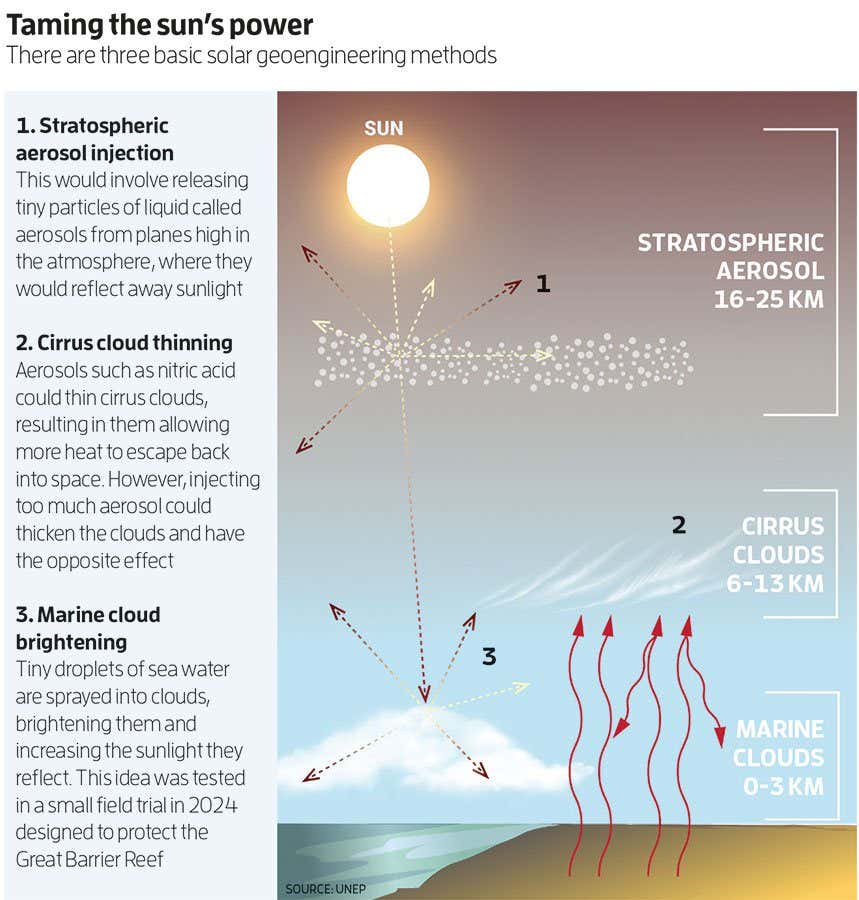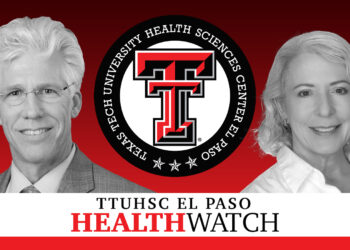
mdesigner125/iStockphoto/Getty Images
We know the only safe and long-term solution to climate change is cutting our greenhouse gas emissions. But in the face of still-rising emissions and escalating climate impacts, some are considering an option that – until recently – would never have escaped a researcher’s lips without a good deal of trepidation.
This story is part of our Concepts Special, in which we reveal how experts think about some of the most mind-blowing ideas in science. Read more here
“Geoengineering” is a catch-all term used to describe human interventions in climate systems, generally with the intention of preserving ecosystems or cooling the planet. But defining what counts as geoengineering is tricky. At its most broad, it can capture anything from planting trees to propping up ice sheets with giant underwater curtains.
Some geoengineering ideas are more contentious than others. Large-scale reforestation, when done right, is widely accepted as a positive climate action. But more extreme ideas, such as modifying the way sunlight behaves in Earth’s atmosphere, cause more concern.
It is “different levels of risk and return”, says Janice Lachance at the non-profit American Geophysical Union (AGU), which recently drew up an “ethical framework” for scientists working in this space. “Planting trees in a park… will probably be very quick, very noncontroversial,” she says. “However, it quickly changes when you start thinking about new technologies, new ways of doing things.”
Take the idea of reflecting more sunlight back into space to cool the planet, known as solar radiation management (SRM). This could potentially be done in three basic ways (see graphic below), and most modelling studies suggest the technique could provide some cooling effect within a few years of first deployment, although it might also cause substantial disruption to rainfall cycles and cloud formation.
SRM has long been a taboo research topic, but as temperatures continue to rise and climate impacts become increasingly severe, it is attracting more attention from scientists, governments and philanthropists.
Some activists say we should stay well away from even researching this kind of intervention, warning it risks distracting people from the need to rapidly cut emissions. But Andy Parker at The Degrees Initiative, a nongovernmental organisation focused on SRM, warns emissions cuts are no longer enough for humanity to cope with the impacts of climate change.
He says we “need to consider how we manage risks from greenhouse gases we’ve already emitted”. Plus, without international research and discussion on geoengineering, there is an increasing risk that a “rogue actor”, such as a country suffering acute climate impacts, could decide to unilaterally start geoengineering.
Against this backdrop, a growing number of scientists now support research into geoengineering strategies. “There’s a recognition among some scientists that we are not doing well in meeting the goals of the Paris Agreement,” says Lachance. That is what prompted the AGU to compile its ethical framework to steer research on climate interventions.

It isn’t just how research is conducted that has people worried – who conducts it is also a pressing concern. Planetary-scale geoengineering ideas often put lower-income countries, particularly those around the equator, on the frontline of unintended consequences, such as disruption to monsoon patterns. But most of the research into geoengineering techniques happens in higher-income nations, with less skin in the game.
As part of The Degrees Initiative, Parker is working with researchers across poorer countries in the southern hemisphere to build research capacity in SRM, with the hope that it will ensure any future decision on deployment is influenced by those who have the most at stake. “We’ve got no position on whether SRM is ever used or not,” he says. “But we do think that developing countries need an informed voice to do their own research.”
Read the other stories in this series using the links below:
Topics:
Source link : https://www.newscientist.com/article/2483951-why-geoengineering-is-no-longer-a-complete-taboo-for-scientists/?utm_campaign=RSS%7CNSNS&utm_source=NSNS&utm_medium=RSS&utm_content=home
Author :
Publish date : 2025-06-23 14:00:00
Copyright for syndicated content belongs to the linked Source.








